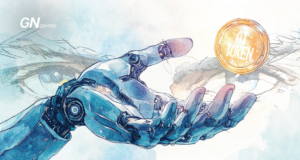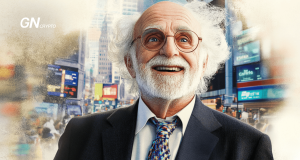Crypto Alliance That Sued Craig Wright: What Is COPA?

Cryptocurrency Open Patent Alliance or COPA is a non-profit organization founded in 2020. It is the biggest commitment to date for cryptocurrency patents (a form of intellectual property rights). COPA aims to encourage the adoption of crypto technologies and prevent the exploitation of patents by bad actors.
On this page
On its website, the alliance mentions:
Open access to patents and freedom from threats on foundational cryptocurrency technologies is necessary for the industry to grow, innovate, and build new products.
COPA is backed by Twitter founder Jack Dorsey’s payments company Block (formerly Square). It provides members with the tools and resources to defend themselves from patent misuse.
COPA’s Solution to Protect Intellectual Rights in Crypto Against Bad Actors
According to analytics by GlobalData, thousands of blockchain-related patents have been filed since 2020. COPA finds that the large number of filings raises concerns because their misuse threatens the crypto industry's growth. Primarily, patents are filed by large companies, while many crypto companies don’t own intellectual rights and are unable to adequately defend against bad actors. COPA’s solution to this is its shared patent pool to empower the community to use each other’s patents when needed and defend themselves. Members can access the pool regardless of whether they own patents themselves or not. They pledge never to use crypto-technology patents against anyone except for defensive reasons.
COPA Members
COPA has more than 30 members. The list includes Coinbase, MicroStrategy, Kraken, Uniswap, Stacks, and others. There is no entry barrier for individuals or companies to join the alliance. A board of nine members governs the community with three from the open-source community and six from member companies.
COPA vs Craig Wright Legal Battle
The conflict between COPA and Craig Wright started in April 2021, when COPA filed a lawsuit against the Australian computer scientist, who claims to be the real creator of Bitcoin, Satoshi Nakamoto. In the filing, COPA stated that Wright is not the author of the Bitcoin White Paper, and should not assert any intellectual rights.
Wright has been claiming he’s Satoshi since 2016. He presented legal claims against Bitcoin developers saying they should not change the software. This refers to Bitcoin Core, Bitcoin Cash, and ABC Bitcoin databases.
On February 5, 2024, a tense trial began in the UK High Court between COPA and Wright to finally settle the question. According to COPA, Wright should not impede the development of Bitcoin by pretending that he wrote the Bitcoin WhitePaper. On the first day of the trial, COPA’s advocate said:
Our case is that Dr Wright’s claim to be Satoshi Nakamoto is a brazen lie, an elaborate false narrative supported by forgery on an industrial scale.
Wright replied to allegations over a forged document saying:
If I had forged that document then it would be perfect.
As part of the case, the scientist faced cross-examinations, responding to lawyers’ questions about cryptography and his connections with Bitcoin.
On March 14, the six-week trial came to a conclusion with the judge’s decision that Wright is NOT the real Satoshi Nakamoto.
Patents in the Crypto Industry
By registering a patent, crypto inventors receive the exclusive right to earn money for their creations as officially recognized authors. In the fast-growing world of crypto, the protection of Intellectual Property rights presents its challenges. New solutions are being developed every day and the open-source nature of many products increases the risks of conflicts. Organizations like COPA are important in providing legal assistance to the community and helping to address intellectual property issues.
The content on The Coinomist is for informational purposes only and should not be interpreted as financial advice. While we strive to provide accurate and up-to-date information, we do not guarantee the accuracy, completeness, or reliability of any content. Neither we accept liability for any errors or omissions in the information provided or for any financial losses incurred as a result of relying on this information. Actions based on this content are at your own risk. Always do your own research and consult a professional. See our Terms, Privacy Policy, and Disclaimers for more details.

























